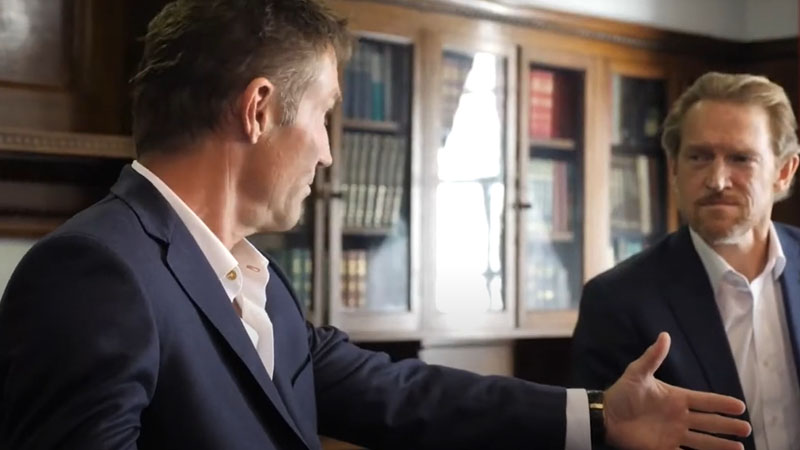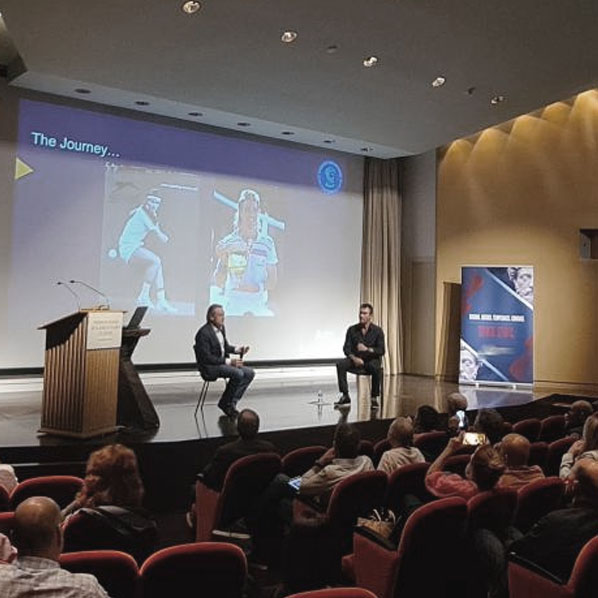-
About Us
-
Library
-
What We Do
-
Latest
- Shop
On Remembering Death
February 22

‘If, then, when you finally come close to your exit…if your fear is not that you will cease to live, but that you never started a life…then you will be a man worthy of the universe that gave you birth…’
Marcus Aurelius, Meditations 12.2
The perspective that we should not fear death; but rather we should fear never beginning to live, is worth reflecting on. What is death? Death, to me at least, is absence. An absence of consciousness. The sad reality is that even while alive, it could be argued that people spend their lives in intermittent states of death. Death could be when you get home and no-one notices. Or when an elderly relative no longer recognises you. Or meeting up with a friend; only to see them absentmindedly scroll through social media, signalling their lack of presence in the moment. As Aurelius outlines while musing on our collective fear of death:
‘He who fears death fears either unconsciousness or another sort of consciousness.’
Marcus Aurelius, Meditations 8.58
All too often, the pressures of daily life incentivise us to exist in a state of unconsciousness. To exist in temporary but habitually repeated states of death. Work is one such example. Unless we are one of the fortunate few to derive meaning from our work, we risk being numbed into this strange, unconsciousness state. While our body goes into autopilot on the factory line, shop floor or delivery route, our mind is drawn wistfully to escape; in dreamy thoughts of collapsing onto a sofa, dinner, or the coveted freedom of the weekend.
This compulsion we have to separate what our mind thinks and our body does, is testament to how psychologically taxing workplace monotony can be. I experienced this dreaded “dead time” myself. The mental friction between the monotonous work I was doing, next to my desire for a job with more meaning, sparked a motivation to go out and find the latter. It took working in menial jobs, to realise just how much I didn’t want a future working menial jobs. It took an experience of something negative, to realise just how much I valued a more positive future.
Given the boundless time some understandably, but wrongly feel they have, death seems so distant that living life with an appreciation of its shortness feels out of place. Particularly in our younger years, we have the tendency to miss the renewed meaning that death can bring to our life. If we are to have any hope of exonerating ourselves from the adage that, ‘youth is wasted on the young’; we must appreciate the meaning that death (far off though it may seem) can offer our lives.
Death is the default. You have plenty of time to be absentminded, unconscious and numb when you die. Life then, is the exception. Though the circumstances of lockdown have clearly been challenging for many; for some it has also presented the opportunity to renegotiate their work-life balance. I know anecdotally from friends that lockdown has felt wasted to many. Indeed, how many people prior to lockdown sought a better, more flexible relationship with their work, only to squander it when lockdown gave them exactly that? How many more have lost their jobs? What would they give to be put in the position of the former group? This is to say nothing of those who have tragically lost loved ones. All too often, we seem resigned not to value what we have until it is lost.
We all have this brief window through which we have the opportunity to transcend death; to lead a good life, help others to do the same and leave this world in a better place than we left it. Not everyone starts with the same capacity to do so; nor an equal amount of time in which to do it. ‘Beating death’ is about more than just living a long life. It means living a life so vibrantly full that you leave a legacy in what you build, and the cascading ripples of growth you inspire in others.
The renewed vitality to life that near-death experiences so frequently bring to their victims, speaks to this curious relationship between life and death. In a twist of cosmic irony, to appreciate life we must remember death; while to meet death without the anxiety of wandering what could have been, we must have lived a meaningful life.
As Seneca exhorts:
‘…no one sets a value on time; all use it lavishly, as if it cost nothing…But if each one could have the number of his future years set before him…how alarmed those would be who saw only a few remaining, how sparing of them would they be!’
Seneca, On the Shortness of Life 8
As Seneca implies, we can only appreciate the preciousness of time when we realise our own has an ever-approaching end point. This awareness forces us to spend our time with a renewed understanding of what is to come. But how should we remind ourselves of this in practice?
Our ancestors were right to endow animals like the crow as a vivid symbol of death. In modernity we have forgotten death. Our science has pushed back death’s frontiers; our distaste for death has led us to swiftly conceal the recently passed, while general civility has left death outside the boundaries of polite conversation. All this is perfectly reasonable. But consequentially this has helped to conceal a truth which should be seen by all: that remembering the finiteness of life brings us a revitalised appreciation of it. Our ancestors, because of the grizzly conditions they faced, were well aware of their mortality – and the capriciousness with which their lives could curtly end. Our ritualistic relics of the past surrounding death – funerals being the most glaring cross-cultural example, speak to the universally acknowledged importance of “Memento mori”. As traditional symbols of death, it seems eerily appropriate that increasing scientific evidence suggests that crows conduct what seem to be funerals for their dead.
Now more than ever, we need to remember death. While we should be grateful that we are not exposed to the regular visceral reminders of our own mortality that our ancestors endured; we should not neglect the profound function that their traditional rituals and symbols of death served. Perhaps we should adapt these reminders, or invent totally new ways of remembering death for modernity. Without these gentle reminders to remember death, it seems unrealistic to be mindful on a regular basis; on the morning commute, when we brush our teeth, or while eating ice cream. We needn’t spend each waking moment lugubriously imagining our demise. But it is worth the occasional reminder of the fact we won’t always be here. The purpose of this is not to make you feel sad. But to make you feel grateful.
We are absurdly fortunate to live the lives we do. Especially when we withdraw to view the bigger picture of the human race globally; life expectancy and general quality across numerous metrics have both seen near consistent increase. This perspective, alongside the reflection of our limited time in which to enjoy these privileges should ground us in gratitude. Indeed, appreciating the shortness of life, empowers us to see petty squabbles, gossiping and slothful behaviour as absurdly strange ways in which to spend our limited time here.
As Marcus Aurelius advises:
‘You may leave this life at any moment: have this possibility in your mind in all that you do or say or think.’
Marcus Aurelius, Meditations 2.11
Here, I think it’s healthy to be kind to ourselves. To recognise that despite my best efforts, I may fall short of embodying Stoic ideals. Here I find it helpful to think of Stoicism less as a noun and more as a verb, in which I aim to “Stoicize” myself. With this in mind, I can much more comfortably claim to be an aspiring Stoic. In the same way, although we shouldn’t hold ourselves to constantly contemplate the impermanence of life, we can aspire to gently remind ourselves. Different people will have their own ways of doing this; I use various artworks of loved ones passed-on, keep withered flowers, have a Memento mori calendar and even have future plans of getting a tattoo. In finding practical ways of remembering death, we are moved to make our time in this life better spent. So that when you have no time left, you’ll know it wasn’t wasted.
Written by Ross Paton
Ross Paton is a writer and youth ambassador for the Aurelius Foundation, where he manages the university engagement program of the foundation.

